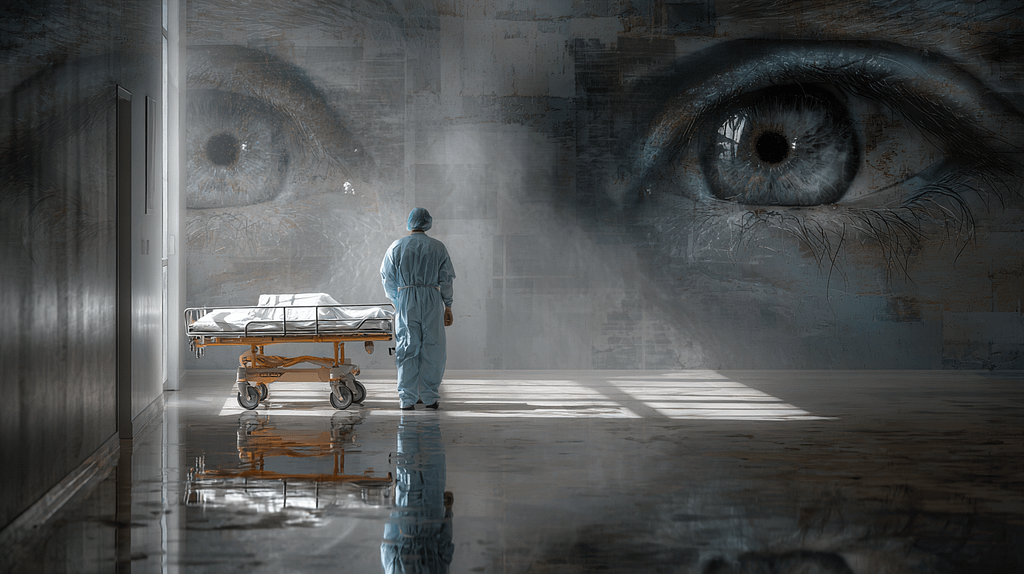Why do people judge” is an ancient question—second only to “Where the hell is the crash cart?” I’ve transported bodies, living and not-so-living, through double doors tighter than my last relationship. One loud bang against a frame and suddenly I’m that nurse. The one who’s ‘reckless,’ ‘inconsiderate,’ and possibly in need of therapy. Forget the 12-hour shift. Forget that I just revived a patient who coded mid-toast. All that matters? I misjudged the corner angle by 3 inches. So let’s unpack this surgical-grade judgment, one gurney bump at a time.
Table of Contents

Judgment doesn’t wait for facts. It doesn’t need context, a backstory, or even a pulse. It just needs noise—a thud, a clang, a single wheel screech—and suddenly you’re the villain in someone’s hallway opera.
So if you’ve ever wondered why do people judge when I’m literally saving lives with my hips halfway dislocated from pivoting a 90-kg patient through a swinging door—don’t worry, I’ve made a list. It’s not science. It’s not philosophy. It’s field notes from the battlefield we call a hospital corridor.
🔗 Funny Nurse Humor When sarcasm becomes a survival skill.
🔗 Crash Intubation and Other Hobbies Because nothing says fun like airway emergencies.
🔗 My First Test Subject A love letter to the one nurse who review my project.
🔗 Defibrillator Battery Still missing. Possibly vacationing in the Maldives.
🔗 What Is Anesthesiology? A philosophical dive into legalized naps.
First Impressions Are Apparently Not Optional
(Or why my hallway crash landing turns into my annual performance review)
Why do people judge so quickly—so confidently—based on nothing but a noise, a flash of motion, and a dented doorframe? I’ve asked myself that while trying to steer 90 kilograms of unconscious human on a wheeled slab with a personality disorder. One wrong pivot, one bump too loud, and suddenly I’m not skilled, not dedicated, not sleep-deprived—but reckless.
There’s no grace period. No benefit of the doubt. Just a flicker of disapproval from whoever happened to be watching as the gurney kissed the frame. I didn’t drop the patient. I didn’t run over anyone’s foot. But I made a sound. And that, apparently, is a crime against decorum.
This isn’t about safety. It’s about optics. Smooth equals competent. Loud equals failure. Why do people judge with their ears instead of their brains? Maybe because it’s easier to criticize a clang than to comprehend adrenaline. The real story—tired hands, slippery floors, zero sleep—doesn’t matter. What matters is perception. And in that split second, perception trumps everything.
It’s not about the patient. It’s not about the door. It’s about the myth that calm equals control. And in medicine, that myth dies hard.
Noise Triggers Judgmental Glances
(If silence is golden, I’m bankrupt)
Why do people judge the loud? Because silence is their comfort drug—and I’m the side effect. A squeaky wheel or a slammed drawer doesn’t signal urgency to them. It signals dysfunction.
They don’t see the controlled chaos, the calculated speed. They hear disruption and assume failure. In their minds, professionalism is quiet, graceful, nearly invisible. Anything louder than a sigh? Suspicious. Too much. Unrefined.
But real work makes noise. Especially when you’re rushing to keep someone alive while the clock rolls its eyes.
Noise isn’t the problem. It’s the discomfort it causes. And people always judge what unsettles them—especially when it reminds them that the world isn’t as composed as they pretend to be.
The “Professionalism” Myth—As Defined by Silent Wheels and Padded Walls
(Spoiler: It’s performance, not substance)
Why do people judge so harshly when your actions don’t fit their aesthetic of “professional”? Because somewhere along the line, someone decided that real competence looks effortless. Quiet hands. Crisp scrubs. No sweat, no tremble, no sound.
But let’s be honest—medicine isn’t a ballet. It’s blood, alarms, and awkward angles. It’s trying to stabilize a crashing patient while your pager screams and the bed refuses to roll in a straight line.
Still, if you move too fast, breathe too loud, or god forbid—sweat—they’ll question your skill. Not because you’re wrong, but because you didn’t look right doing it.
Why do people judge? Because image is easier to assess than intention. And when someone’s concept of “professionalism” is wrapped in silence and perfect posture, any deviation feels like incompetence. Even when it’s the opposite.

People Judge What They Don’t Understand
(And they definitely don’t understand 3 a.m. survival mode)
Why do people judge the things they don’t take time to understand? Because thinking is exhausting. And it’s much easier to slap a label on someone than to ask what’s really going on here.
At 3 a.m., I’m not performing. I’m surviving. If my scrubs are wrinkled and my hair looks like I wrestled a ventilator, it’s because I did. But those on the sidelines don’t see the context. They just see a mess. And mess equals incompetence in their tidy little algorithm.
They don’t understand the calculation behind a split-second decision. The trade-offs. The urgency. So instead, they default to judgment.
Unfamiliar = uncomfortable. And instead of facing their discomfort, people cloak it in criticism. Why do people judge? Because it’s easier than empathizing. Simpler than pausing. And far more satisfying—until the day they’re the ones in the gurney, hoping someone breaks the speed limit for them.
Some People Just Need Something to Gossip About
(Better me than their marriage, right?)
Let’s not overthink it—some people judge because they’re bored. Full stop. The hallway crash, the hurried footsteps, the coffee spill—it’s not a crisis. It’s entertainment.
In sterile places where emotions get bottled and real talk gets buried under protocols, judgment becomes a hobby. And you? You’re just today’s episode.
Why do people judge when they don’t even know the full story? Because gossip doesn’t wait for context. It feeds on fragments. A stumble. A sigh. A missed button. Suddenly you’re the lead in someone else’s poorly written drama.
Truth? It’s not even personal. It’s projection. It’s distraction. It’s easier to whisper about the nurse with the messy bun than confront their own crumbling composure.
And honestly? Let them. I’ve got better things to do—like, say, keeping humans alive while being judged for the way I push a bed.
